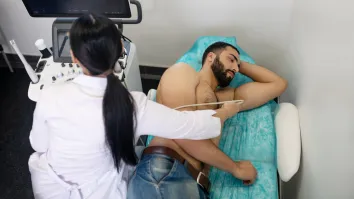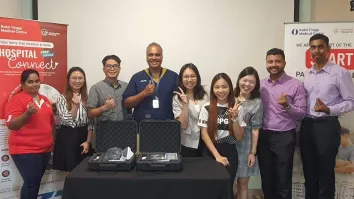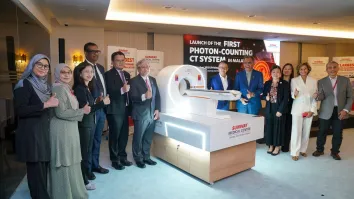
Accreditation’s not just for show anymore
When Apollo Hospitals Group devised its strategy to deliver worldclass patient care, it knew for certain that securing the right accreditation was only the first step.
“Accreditation is a starting point for an organization,” says Dr Anupam Sibal, group medical director at Apollo Hospitals Group. “It aids collaborative leadership that strives for excellence in quality and patient safety. It helps build a culture of quality improvement and streamlining of systems and processes.” This reflects a shift, as accreditation is no longer seen as a marketing badge that helps increase revenues, but a springboard for better clinical outcomes and patient safety.
A starting point
Hospital groups that do not rest on their accreditation laurels will find that they are in a solid position to enhance their service reliability and efficiency, and further lift their standards past their complacent peers. Sibal says accredited organizations can begin to focus on measuring, benchmarking and improving their clinical outcomes – a metric that matters most to patients.
“The accreditation is basically framework. Once a hospital gets certification, the real journey begins,” says Dr. Girdhar J Gyani, director general, Association of Healthcare Providers in India. The issue of complacency after accreditation has come to the forefront as Southeast Asia sees a spurt in accredited organisations. Currently 120 of the 683 organisations accredited by the Joint Commission are now located in the region.
Culture of improvement
Accredited organizations will need to work on creating a culture of continuous quality improvement, says Gyani.“Employees need to be empowered to take ownership of their respective processes. There needs to be a process of internal system audits, clinical audits, monitoring of indicators, and finally management reviews.” A culture that promotes excellence as a habit, with the right incentives and accountability, goes a long way in achieving the best clinical outcomes with service excellence and cost efficiency, adds Sibal.
Accredited organizations should support their continuous improvement processes with initiatives like Kaizen and Six Sigma. Adopting technological innovations will also separate organizations from the rest of the accredited pack.
“Technology, no doubt, is changing the global healthcare delivery landscape and its right adoption at the right time makes a remarkable difference,” says Sibal.



















 Advertise
Advertise





